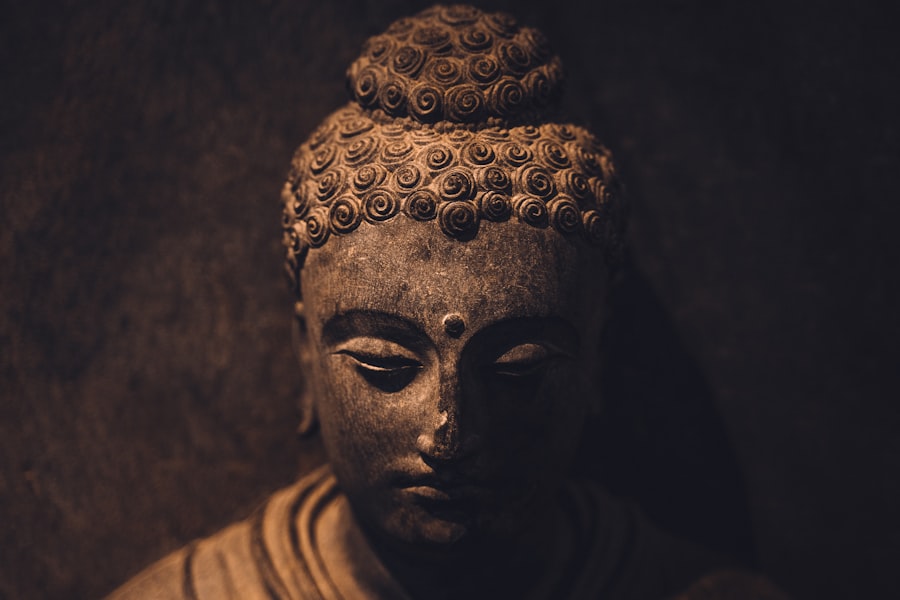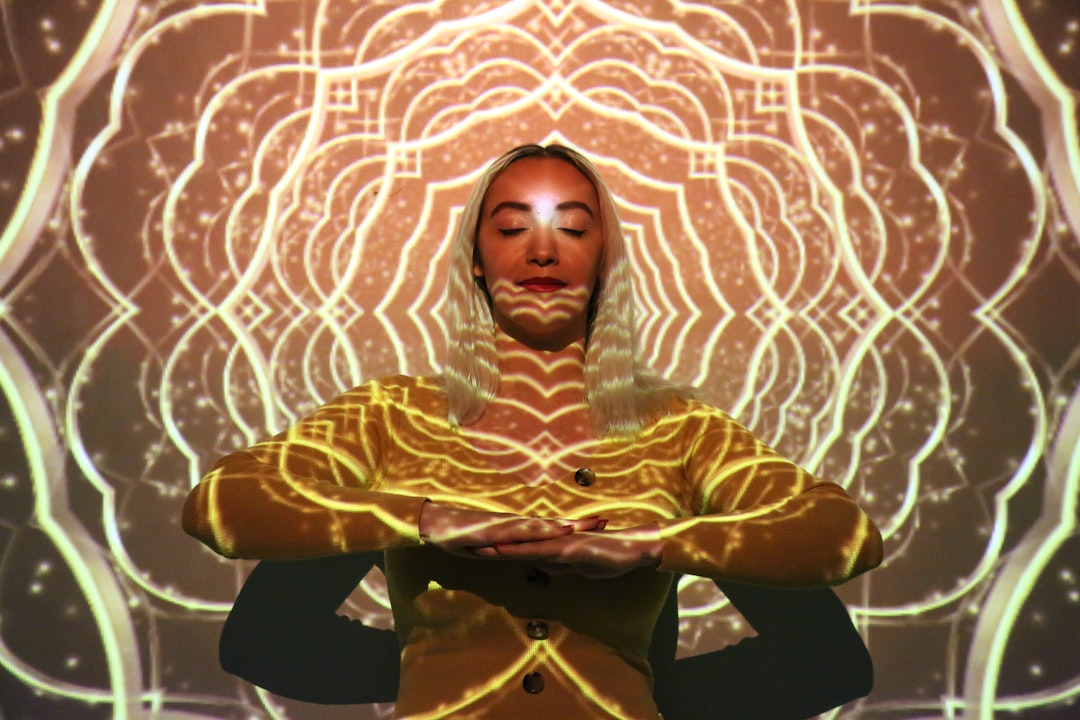The study of consciousness has long fascinated scientists, philosophers, and spiritual seekers alike.
Researchers have made significant strides in understanding how individual consciousness operates, yet the question of how these individual experiences interconnect remains a profound mystery.
The exploration of consciousness is not merely an academic pursuit; it delves into the very fabric of human existence, suggesting that individuals are not isolated entities but rather part of a larger tapestry of awareness. Recent advancements in neuroscience have illuminated the neural correlates of consciousness, revealing how brain activity corresponds to subjective experiences. However, this scientific inquiry also raises questions about the nature of self and the interconnectedness of minds.
Theories such as panpsychism propose that consciousness may be a fundamental aspect of the universe, suggesting that all matter possesses some form of awareness. This perspective invites a reevaluation of the boundaries between individual consciousness and a collective experience, hinting at a shared consciousness that transcends personal identity.
Key Takeaways
- The science of consciousness suggests a link between individuals, indicating a potential interconnectedness.
- Quantum physics plays a role in understanding consciousness, offering insights into its nature and potential connections.
- Our thoughts and emotions have an impact on the collective consciousness, shaping the overall energy and atmosphere.
- The power of intention influences the collective consciousness, highlighting the importance of positive and mindful intentions.
- Exploring the concept of a universal consciousness suggests a potential interconnectedness beyond individual experiences.
The Role of Quantum Physics in Understanding Consciousness
Quantum physics has emerged as a pivotal field in the quest to understand consciousness, offering insights that challenge conventional notions of reality. At its core, quantum theory posits that particles exist in a state of probability until observed, leading to intriguing implications for the nature of consciousness. Some theorists suggest that consciousness itself may play a role in collapsing these probabilities into tangible experiences, thus intertwining the observer with the observed.
This perspective opens up a dialogue between science and spirituality, suggesting that consciousness is not merely a byproduct of brain activity but an integral component of the universe. The concept of entanglement in quantum physics further complicates our understanding of consciousness. Entangled particles remain connected across vast distances, influencing one another instantaneously regardless of space and time.
This phenomenon raises questions about the potential for a collective consciousness that transcends individual minds. If consciousness can be viewed through the lens of quantum mechanics, it may be possible to conceive of a shared awareness that connects all beings, suggesting that thoughts and emotions are not confined to isolated individuals but resonate within a broader collective framework.
How Our Thoughts and Emotions Impact the Collective Consciousness

The interplay between individual thoughts and emotions and the collective consciousness is a dynamic and intricate relationship. Each person’s mental state contributes to the overall emotional landscape of society, creating ripples that can influence others in profound ways. Positive thoughts and emotions can uplift collective energy, fostering an environment conducive to compassion and understanding.
Conversely, negative emotions such as fear or anger can permeate the collective consciousness, leading to societal discord and unrest. Research in psychology has shown that emotions are contagious; they can spread from one individual to another through social interactions.
When individuals cultivate positive mindsets and emotional resilience, they contribute to a healthier collective consciousness. The recognition that one’s thoughts and feelings can impact others encourages a sense of interconnectedness, prompting individuals to engage in practices that promote emotional well-being not only for themselves but for the community at large.
The Power of Intention and Its Influence on the Collective
| Aspect | Metrics |
|---|---|
| Positive Intention | Percentage of individuals practicing positive intention daily |
| Collective Energy | Measure of collective energy generated through intention |
| Impact on Society | Number of documented cases where intention has positively influenced society |
| Scientific Studies | Count of scientific studies supporting the power of intention |
Intention is a powerful force that shapes reality at both individual and collective levels. When individuals set intentions rooted in love, compassion, and positivity, they create energetic vibrations that resonate within the collective consciousness. This phenomenon is often observed in group meditations or collective prayer sessions, where participants focus their intentions on healing or peace.
The cumulative effect of these shared intentions can lead to tangible shifts in societal dynamics, fostering unity and collaboration. Moreover, intention acts as a guiding principle for actions and decisions. When individuals align their intentions with higher values, they contribute to a collective ethos that prioritizes well-being and harmony.
This alignment can manifest in various forms, from grassroots movements advocating for social justice to community initiatives aimed at environmental sustainability. By harnessing the power of intention, individuals can catalyze positive change within their communities, reinforcing the idea that collective consciousness is malleable and responsive to focused efforts.
Exploring the Concept of a Universal Consciousness
The notion of universal consciousness posits that all beings are interconnected through a shared awareness that transcends individual experiences. This concept has roots in various philosophical and spiritual traditions, suggesting that beneath the surface diversity of human experience lies a fundamental unity. Universal consciousness implies that every thought, emotion, and action contributes to a larger tapestry of existence, where individual experiences are interwoven into a collective narrative.
Philosophers such as Carl Jung have explored this idea through the lens of the collective unconscious—a reservoir of shared memories and archetypes that shape human behavior across cultures. Jung’s theories suggest that individuals tap into this universal consciousness through dreams, myths, and symbols, revealing insights that resonate on a collective level. By recognizing their connection to this broader consciousness, individuals can cultivate empathy and understanding for others, fostering a sense of belonging within the human experience.
The Role of Meditation and Mindfulness in Connecting with the Collective Consciousness

Meditation and mindfulness practices serve as powerful tools for individuals seeking to connect with the collective consciousness. These practices encourage self-awareness and present-moment focus, allowing individuals to transcend their personal narratives and tap into a deeper sense of interconnectedness. Through meditation, individuals can quiet their minds and cultivate an inner stillness that opens pathways to collective awareness.
Research has shown that group meditation can amplify these effects, creating a shared space where participants collectively raise their vibrational frequencies. This phenomenon is often referred to as “group synergy,” where the combined energy of multiple individuals enhances the overall experience. As participants enter states of deep relaxation and heightened awareness together, they contribute to a collective field of consciousness that fosters healing and transformation on both personal and societal levels.
The Impact of Social Media and Technology on Our Collective Consciousness
In today’s digital age, social media and technology play significant roles in shaping collective consciousness. These platforms facilitate instantaneous communication and information sharing, allowing individuals to connect across geographical boundaries. However, this connectivity comes with both positive and negative implications for collective awareness.
On one hand, social media can amplify voices advocating for social change and foster global movements; on the other hand, it can also perpetuate divisiveness and misinformation. The rapid dissemination of information through social media has transformed how individuals engage with one another and perceive societal issues. While technology has the potential to unite people around common causes, it can also create echo chambers where dissenting opinions are marginalized.
This duality highlights the importance of critical thinking and discernment in navigating digital spaces. As individuals engage with technology mindfully, they can contribute positively to the collective consciousness by promoting understanding and empathy rather than division.
The Connection Between Empathy and the Collective Consciousness
Empathy serves as a vital bridge connecting individual experiences to the broader collective consciousness. It allows individuals to resonate with the feelings and perspectives of others, fostering understanding and compassion across diverse backgrounds. When individuals cultivate empathy within themselves, they contribute to a more harmonious collective experience by recognizing shared humanity.
Research has shown that empathetic responses can lead to prosocial behaviors, encouraging individuals to act in ways that benefit others. This ripple effect reinforces the idea that personal actions have far-reaching consequences within the collective consciousness. By nurturing empathy through active listening, open dialogue, and compassionate engagement, individuals can help create an environment where mutual support thrives, ultimately enhancing the overall well-being of society.
The Influence of Cultural and Societal Beliefs on the Collective Consciousness
Cultural and societal beliefs play a significant role in shaping collective consciousness by influencing values, norms, and behaviors within communities. These beliefs are often passed down through generations, creating frameworks through which individuals interpret their experiences. As such, cultural narratives can either uplift or constrain collective awareness depending on their nature.
For instance, cultures that prioritize collaboration, inclusivity, and compassion tend to foster positive collective consciousness characterized by unity and support. Conversely, cultures steeped in competition or exclusion may contribute to fragmentation within society. Recognizing these influences allows individuals to critically assess their own beliefs and challenge those that perpetuate division or negativity.
By embracing cultural narratives that promote understanding and connection, individuals can actively participate in reshaping collective consciousness toward more positive outcomes.
The Role of Group Dynamics and Collective Behavior in Shaping Consciousness
Group dynamics significantly influence how collective consciousness manifests within societies. Individuals often conform to group norms and behaviors, which can either enhance or detract from overall well-being. Understanding these dynamics is crucial for fostering environments where positive collective consciousness flourishes.
Social psychology has explored phenomena such as groupthink—where consensus-seeking leads to poor decision-making—and social facilitation—where individuals perform better in group settings due to increased motivation. These dynamics highlight the importance of creating spaces where diverse perspectives are valued and encouraged. By fostering open dialogue and collaboration within groups, individuals can collectively elevate their consciousness while mitigating negative influences associated with conformity or group polarization.
Practical Steps for Cultivating a Positive Connection with the Collective Consciousness
Cultivating a positive connection with the collective consciousness requires intentional effort from individuals seeking to contribute meaningfully to society. One practical step is engaging in regular self-reflection to assess personal beliefs and behaviors that may impact others negatively. By fostering self-awareness, individuals can identify areas for growth and transformation.
Additionally, participating in community initiatives or volunteer work allows individuals to connect with others while contributing positively to society. These experiences foster empathy and understanding while reinforcing the idea that individual actions matter within the larger context of collective consciousness. Practicing mindfulness techniques such as meditation or gratitude journaling can also enhance awareness of interconnectedness while promoting emotional well-being.
In conclusion, exploring the multifaceted nature of consciousness reveals profound insights into how individual experiences shape collective awareness. By recognizing their interconnectedness with others—through intention-setting, empathy cultivation, cultural understanding—and engaging mindfully with technology—individuals can actively contribute toward nurturing a positive collective consciousness that uplifts society as a whole.
In exploring the intriguing question of whether we are all connected by consciousness, one might find it beneficial to delve into related discussions that expand on the interconnectedness of human experience and the universe. A compelling article that complements this topic can be found on X File Findings, which delves into various theories and perspectives on consciousness and its potential universal links. For further reading, you can visit the article by clicking on this link. This piece provides additional insights and theories that may enhance your understanding of the complex web of consciousness that potentially binds us all.
😲 WATCH THIS! The Secret Data That Proves Our Reality Is A Shared Illusion
FAQs
What is consciousness?
Consciousness refers to the state of being aware and able to perceive one’s surroundings and experiences. It involves the ability to think, feel, and have subjective experiences.
Are we all connected by consciousness?
The idea that we are all connected by consciousness is a philosophical and spiritual concept that suggests a collective or universal consciousness that connects all living beings. This concept is not universally accepted within the scientific community and is a topic of ongoing debate and exploration.
Is there scientific evidence for the interconnectedness of consciousness?
While there is ongoing research into the nature of consciousness, there is currently no scientific consensus or empirical evidence to support the idea of a universal or interconnected consciousness that connects all individuals.
What are some theories about the interconnectedness of consciousness?
Some theories propose that consciousness may be interconnected through quantum entanglement, while others suggest that it may be linked through shared experiences, empathy, or other psychological and social factors. These theories are speculative and have not been conclusively proven.
How does the concept of interconnected consciousness relate to spirituality and philosophy?
The concept of interconnected consciousness is often explored within spiritual and philosophical traditions, where it is seen as a way to understand the interconnectedness of all life and the potential for shared experiences and empathy. It is a central concept in some Eastern philosophies and New Age spiritual beliefs.
